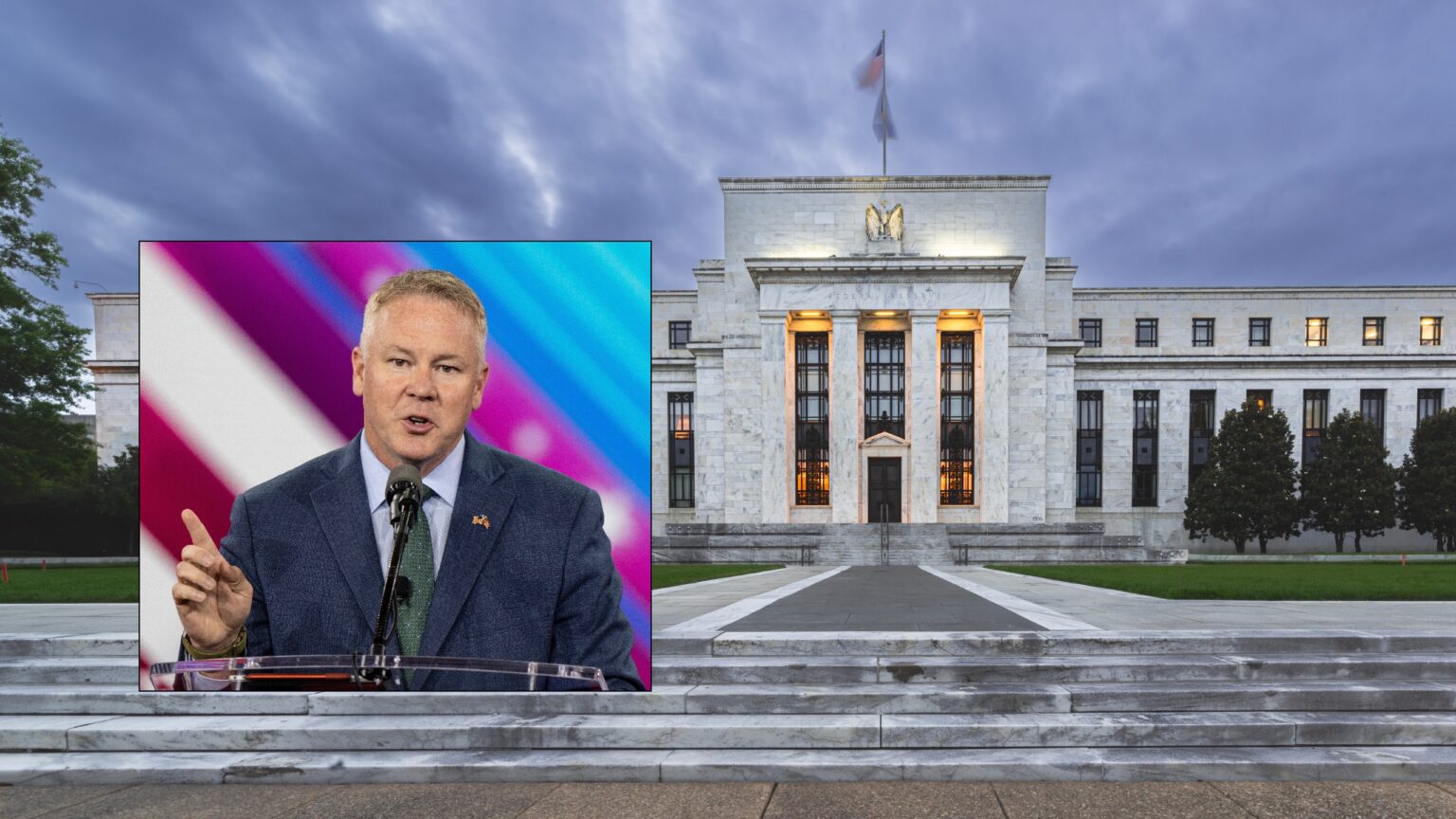Republican Representative Warren Davidson from Ohio, a known blockchain advocate, is drawing a clear line in the sand on his position against Central Bank Digital Currencies (CBDCs).
Joining a rising tide of skeptics within the political realm, Davidson calls for an outright ban and even criminalizes initiatives to institute CBDCs. The congressman, known for his outspokenness, compared the Federal Reserve’s drive towards CBDCs to “building the financial equivalent of the Death Star” in a recent Twitter post.
The Federal Reserve is building the financial equivalent of the Death Star.
Central Bank Digital Currency (CBDC) corrupts money into a tool for coercion & control.
Congress must swiftly ban then criminalize any effort to design, build, develop, test or establish a #CBDC. pic.twitter.com/9JWiyj5H2f
— Warren Davidson 🇺🇸 (@WarrenDavidson) July 23, 2023
Davidson’s stance springs from the belief that money should serve as a stable store of value, unfettered by the manipulative hands of a central authority. He urges the need for a “sound money” system that enables “permission-less peer-to-peer transactions.” With this stand, Davidson proudly adds his name to the growing roster of politicians expressing significant concern about the potential implementation of a digital dollar.
Concerns over federal overreach and privacy
Introducing a digital version of the dollar has been something the Federal Reserve has been seriously considering for the last several years. While many officials share Davidson’s worries, the notion has sparked a debate.
A common theme reverberates among these discussions – a Federal Reserve-controlled digital dollar could potentially infringe on Americans’ financial privacy and catalyze an excessive concentration of economic power in the hands of a few.
Texas Senator Ted Cruz, a fellow Republican and digital currency skeptic, shared this perspective. Cruz previously attempted to introduce a bill to preclude the Fed from developing a direct-to-consumer retail CBDC. Much like Davidson, Cruz emphasized that U.S. digital currency policies must strike a careful balance – protect financial privacy, ensure the dominance of the U.S. dollar in global transactions, and foster financial innovation.
The federal government has no authority to unilaterally establish a central bank currency.
Read about my new bill in @FoxBusiness: Ted Cruz introduces bill blocking Fed from adopting central bank digital currencyhttps://t.co/LoX3u41nA4
— Senator Ted Cruz (@SenTedCruz) March 21, 2023
But Cruz’s concerns go deeper as he fears the Federal Reserve morphing into a retail bank, accumulating vast volumes of user data, and indefinitely tracking transactions. He’s not alone in this fear. Cruz finds company in Republican Senators Mike Braun of Indiana and Chuck Grassley of Iowa, both of whom share his apprehensions about the spectre of surveillance that a CBDC might cast.
Riding the same wave: Emmer and DeSantis
Simultaneously, other U.S. politicians have taken substantial steps to curb the development of CBDCs. Congressman Tom Emmer of Minnesota, a leading voice for digital currencies in the U.S. Congress, recently introduced the “CBDC Anti-Surveillance State Act.”
Today, I introduced the CBDC Anti-Surveillance State Act to halt efforts of unelected bureaucrats in Washington, DC from stripping Americans of their right to financial privacy. 👇 pic.twitter.com/lONbHFZMk7
— Tom Emmer (@GOPMajorityWhip) February 22, 2023
This legislative proposal limits the Federal Reserve’s authority over a potential digital dollar. Emmer’s bill resonates with Davidson’s strong advocacy for upholding the principles of privacy, individual sovereignty, and free-market competitiveness.
Adding to the chorus of voices, Florida Governor Ron DeSantis weighed in on the digital dollar debate. He drew parallels between the digital dollar and China’s digital yuan, criticizing it as a potential tool for implementing extensive citizen surveillance, much like what is feared in China.
In a decisive move, DeSantis has urged state lawmakers to establish a legal barrier against adopting a digital dollar in Florida. Additionally, he also sees the possibility of a CBDC as a danger to cryptocurrency:
“I believe they want to crowd out and eliminate other types of digital assets, such as cryptocurrency because they cannot control them and thus dislike them.”
Conclusion: balancing innovation and privacy
As the U.S. grapples with the ever-evolving landscape of digital currencies, lawmakers find themselves wrestling with the demanding task of nurturing innovation while preserving the sacredness of citizens’ financial privacy. The looming prospect of a digital dollar stokes spirited debates about the degree of control the Federal Reserve should, or indeed could, wield over CBDCs.
Davidson and his political supporters have not given up on challenging the Federal Reserve’s power over the economy, which they say is booming uncontrollably. The present instability is influencing the future of digital currencies in the United States.
In the history of global finance, the introduction of digital currencies represents a pivotal milestone. This development’s path is very susceptible to the choices taken today in the corridors of power.









 and then
and then